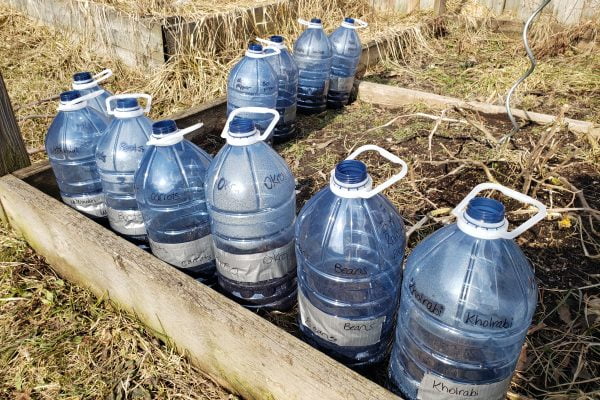Before I jump into this blog, I want it to be known that I have a HUGE sweet tooth and that it’s taken me such a long time to get to where I’m at with sugar. It’s time we break up.
We all know that sugar is downright bad for you. There’s no way around it. And unfortunately, it’s super addicting. In fact, researchers have reported that sugar may actually be more addicting than opioid drugs!
Sugar Causes Weight Gain
When we eat sugary foods, it spikes our blood sugar levels which causes our bodies to release insulin. Insulin is a hormone produced by the pancreas that helps shuttle sugar into our cells to be used for energy. That’s why candy makes kids hyper.
However, repeated spikes in blood sugar leads to something called insulin resistance. What this means is that the cells no longer respond to insulin. Unfortunately, while cells can be resistant to insulin’s energy transport properties, they can still respond to its fat storing role. This is called ‘selective insulin resistance’ and is what often leads to weight gain and fatty liver disease.
The state of having high blood sugar is called hyperglycemia. This condition can cause quite a few problems. It impairs normal cell function, promotes inflammation, is linked to obesity and chronic diseases like heart disease, can cause high blood pressure and increased triglyceride levels. It also interferes with leptin – a hormone that influences energy regulation (calorie intake and calorie burning) and fat storage. Leptin is what decreases hunger, therefore inhibiting overeating and weight gain.
A study in over 30,000 people found that those who consumed 17-21% of their calories from added sugar had a 38% increased risk of dying from heart disease. 38% increased risk! That doesn’t sound so sweet to me.
Sugar Consumption Over the Years
The 2015 Canadian Community Health Survey (CCHS) is the most recent sugar consumption survey that we have. It compares the sugar consumption for different age groups from 2004 and 2015.

I’m super happy to say we have decreased our sugar intake from 2004 to 2015, and I only hope that more recent studies show that we Canadians have continued this trend. Sugar content in beverages has decreased but added sugar in foods have actually increased! This is not good. Think of the sugary breakfast cereals we often eat. Or the breakfast bars. Even salty foods like potato chips have sugar added. However, despite the increase, beverages still remain the number one source of added sugar for Canadians.
It’s important to note that most food labels don’t explicitly label sugar as an ingredient. Other names for sugar are glucose, dextrose, maltose, fructose, corn sweetener, corn syrup, high-fructose corn syrup, sucrose, sorghum syrup, sorbitol, brown sugar, honey, lactose, molasses, syrup, and fruit juice concentrate.
The World Health Organization (WHO) recommends that we should consume less than 10% of our daily calories from sugar. For someone following the standard 2,000 calorie/day that would look like 200g of sugar or less per day. For someone following a lower, 1,500 calorie/day diet that would be 150g or less per day. To put things into perspective, just one can of coke contains 39g of sugar – that’s already 20% of your maximum sugar allowance if you’re following a 2,000 calorie a day diet.
Unhealthy Sugar Substitutes
There are many sugar substitutes out on grocery shelves marketed as 0 sugar sweeteners. Sure, these are great alternatives to help reduce sugar intake, but they’re actually quite toxic for the human body.
Equal
The sweetener Equal is made from aspartame. Aspartame is a synthetic sweetener that has been linked to various diseases and illnesses, such as depression, anxiety, insomnia, ADHD, PMS symptoms, Alzheimer’s, multiple sclerosis, and even cancer. In total, aspartame is a common risk factor for 92 different health symptoms and conditions. Yep, 92.
Splenda
Splenda is made from sucralose – a modified form of sugar with added chlorine. Yikes. It has actually been proven to kill off good gut bacteria, make medications less effective, alter insulin response, and even increase the risk for Type II diabetes, metabolic syndrome and obesity. What’s worse is that Splenda actually becomes TOXIC when heated. That’s right DO NOT bake or cook with this stuff.
Sweet’n Low
This artificial sweetener is made from saccharin, which is a synthetic compound. Human studies are still showing conflicting results; but animal studies have proven that saccharin caused bladder, uterine, ovarian and other organ cancers. While some human studies find saccharin to be safe, some find it to be completely unsafe. With all the conflicting reports out there, I think it’s best to avoid it if possible – just to be safe.
Best Sugar Alternatives
Stevia
Stevia is like my FAVOURITE thing. At my home, I haven’t added real sugar to my coffee alternative or tea in YEARS. Stevia is a natural plant native to Peru and Brazil. What’s great is that it tastes about 300x sweeter than regular sugar, but it has no effect on blood sugar at all. Some people who just start using stevia say that there is an aftertaste, but I’d say after a couple weeks you get used to it. Now, I find that regular sugar is the one that tastes weird! Buy the exact stevia that I use here!
Raw Honey
Raw honey is a great sugar alternative. It’s not altered or processed. It’s the natural sweet goodness from our trusted honeybees! While it’s super sweet, raw honey is also a potent antibacterial! And studies have shown that people who use raw honey as sweetener instead of sugar have a lower body fat percentage.
Coconut Sugar
This is another staple in my house. When a recipe calls for sugar, I simply substitute for coconut sugar. The goods come out just as sweet, but with many more antioxidants, vitamins and minerals! Coconut sugar also has a lower glycemic index than regular sugar, so it won’t spike your blood sugar as much.
Pure Maple Syrup
This is another one of my favourites. Most of the baked recipes I use are sweetened with pure maple syrup, not the Aunt Jemima crap that is loaded with high fructose corn syrup and other toxic ingredients. Real 100% pure organic maple syrup offers up to 54 antioxidant compounds and is proven to fight belly bloat. I’d call this stuff true Canadian gold, eh? This maple syrup is a brand I’ve used and love, and the best part is, it’s cheaper on Amazon than in stores!
The Takeaway
With sugar being literally everywhere on supermarket shelves, it’s important that we be diligent about reading the nutrition facts. Marketing companies have become really sneaky at disguising products as “healthy” when they’re really loaded with sugar and artificial sweeteners.
Also beware of products labelled as “low fat.” Often times, when the fat is removed so is the flavour. So, manufacturers have to sweeten up the product for it to taste good. The nutrition label may only state 5g of sugar, but once you read the ingredients, you’ll often realize that it’s loaded with synthetic sweeteners and fillers. Gross.
Taking this extra step at the grocery store and making simple swaps in your baking will make a world of a difference with your mood, mental clarity, skin, acne, and your waistline. So cut out the processed crap and indulge on the good stuff, you owe it to yourself!
If you liked this post, don’t forget to subscribe to my newsletter and be sure to share it to all your friends!



